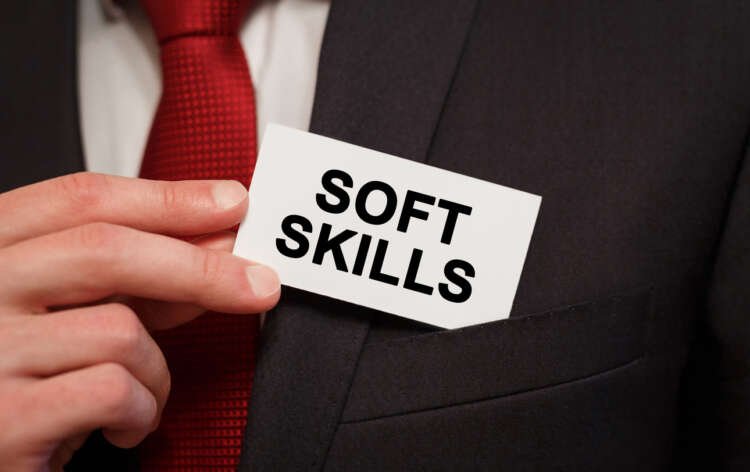Soft Skills Still Required – But Technology Is Improving M&A Processes & Valuations
Published by Jessica Weisman-Pitts
Posted on November 16, 2022
4 min readLast updated: February 3, 2026

Published by Jessica Weisman-Pitts
Posted on November 16, 2022
4 min readLast updated: February 3, 2026

By Doug Cullen, Chief Product & Strategy Officer at Datasite
During the pandemic, dealmakers embraced digital tools, sometimes even utilizing drones, to ensure deals were executed efficiently and effectively. Video conference calls and remote collaboration often included using workflow tools powered by artificial intelligence and machine learning to automate tasks. And with deal volume reaching historic heights, especially in 2021, these tools helped dealmakers compress the length of time it took to complete deals. In fact, the time to complete a deal on Datasite, which facilitates about 13,000 global deals a year, decreased by 18% in 2021 compared to 2020.
The pandemic is now nearly officially over, yet dealmakers’ adaptation of technology and tools isn’t going away. Forty-seven percent of more than 540 global dealmakers surveyed by Datasite in June say that they plan to use even more technology to boost their productivity. This is despite inflation, rate hikes and volatile markets dragging down the global volume of announced M&A deals this year.
Mergers and acquisitions (M&A) are also increasing in complexity. In 2021, dealmakers using Datasite ran larger, more complex processes in shorter time frames, compared to 2020. Median preparation time increased by 13%, yet due diligence times overall dropped by 18%. There was an 18% increase in the number of people involved in a deal and there was a 19% uptick in information per median sell-side due diligence process. This year, sell-side processes on Datasite are taking longer to complete. In the first half of this year, dealmakers spent 31% more time on prep and 5% longer on due diligence in the first half of this year compared to the same time last year, as they navigated choppier market conditions.
Still, according to a new report from Harvard Business Review Analytic Services, sponsored by Datasite, there are two factors that remain integral to M&A success: knowledge and speed. Increasingly, dealmakers need more, faster; and while technology is automating several of the time-consuming tasks required in managing deals, and enabling deeper analysis of data, how exactly are dealmakers using data and deploying digital technology in deals? Even more importantly, what should companies be thinking about as M&A continues to evolve in the coming years? The following are a few ideas.
Deal process & valuations helped by more technology and data
More than 20 years ago, technological advances revolutionized M&A with the creation of the virtual data room (VDR), or data storage facilities where documents related to M&A transactions can be securely stored. The VDR, which advanced efficiency exponentially from the days of the physical data room, is now getting a further boost from artificial intelligence and machine learning. These newer technologies are transforming and speeding up the process once again by automating repetitive tasks, powering data analysis, and easing processes across all phases of the deal, including outreach, preparation, due diligence, and post-merger integration.
At the same time, the ability to analyze data with these innovative technologies is helping improve valuations. Analytics tools can help sellers spot trends regarding a company’s products, customers, and sector, or provide regional insights previously unavailable, while data secured from these tools can help buyers best position themselves including their strengths and weaknesses, freeing up dealmakers’ energy for other tasks.
However, technology does have its limits
Increased levels of technology can put the people managing the deals at risk of trying to accomplish too much, especially as always-on connectivity allows more advisors to be involved in each deal. That’s why personal relationships and cultural fit continue to be important in M&A, particularly when it comes to creating informal connections to differentiate from the competition as a buyer or a target.
Other factors such as financing, regulatory scrutiny, national security sensitivities and environmental, social, including diversity, and governance (ESG) issues, are additional areas that can impact M&A processes and the time needed to complete a deal. Smart dealmakers must consider these factors to be successful.
Technology won’t replace the soft skills needed in dealmaking, but it is changing the approach dealmakers take in conducting due diligence and many other aspects of M&A. Moving forward, adopting the right technology to manage the entire M&A process efficiently and effectively will be critical for companies and advisors to thrive.
M&A stands for mergers and acquisitions, a general term that refers to the consolidation of companies or assets through various types of financial transactions.
Due diligence is the process of investigating and evaluating a business or investment opportunity before finalizing a transaction, ensuring all aspects are thoroughly reviewed.
Artificial intelligence (AI) refers to the simulation of human intelligence in machines that are programmed to think and learn like humans, often used in data analysis.
Machine learning is a subset of AI that involves the use of algorithms and statistical models to enable computers to improve their performance on a specific task through experience.
Valuations are assessments of the worth of a company or asset, often conducted during M&A processes to determine fair market value.
Explore more articles in the Technology category











